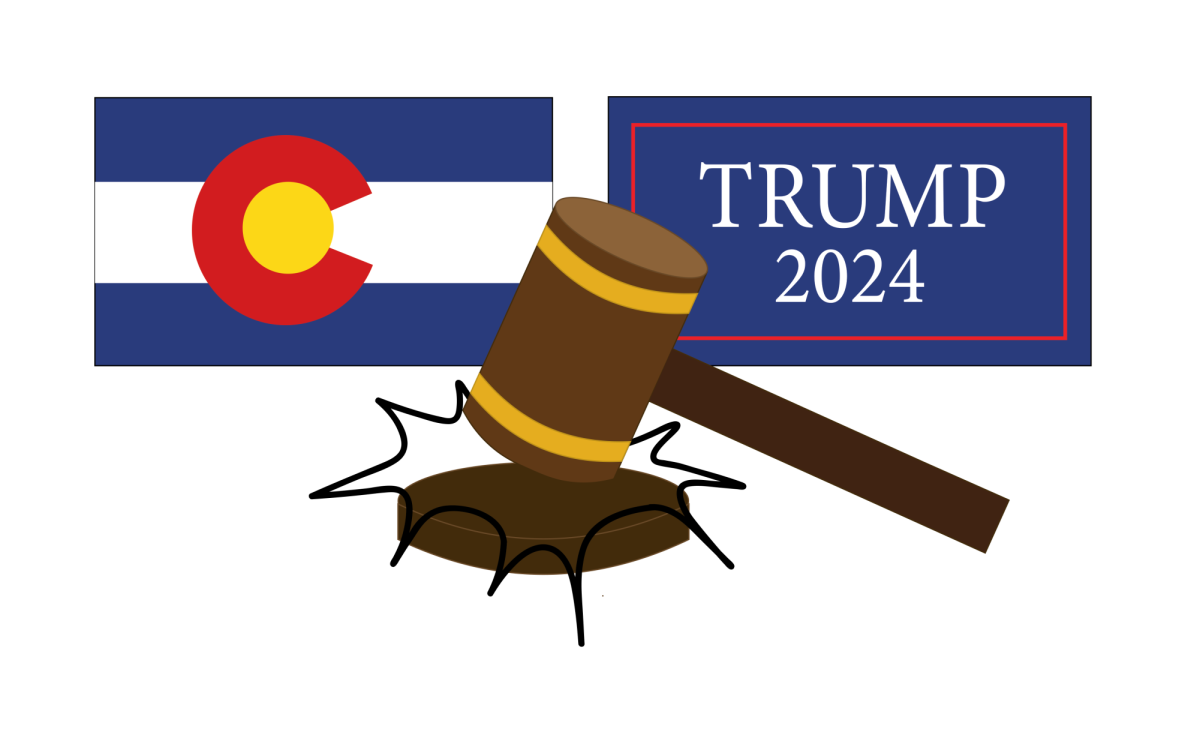On Feb. 8, 2024, the United States Supreme Court will hear oral arguments on whether the state of Colorado can remove Donald J. Trump, former president of the United States, from the Colorado Republican primary ballot. On Dec. 19, 2023, the Colorado Supreme Court upheld a lower court decision that ruled against Trump, removing him from the Colorado primary ballot. In a document published by the Colorado Supreme Court, the court cites Trump’s continued refusal to accept the 2020 presidential election results and his speech to his supporters right before the Jan. 6 insurrection as key elements in their decision.
“We took them by surprise, and this year they rigged an election,” Trump said in his speech to his supporters on Jan. 6, 2021. “They rigged it like they’ve never rigged an election before.”
Another element of the Colorado Supreme Court’s argument is how Trump may have directly incited the insurrection during his speech that day. While Trump may have called for his supporters to “peacefully and patriotically make their voices heard,” he also called for them to “fight like hell.” The Colorado Supreme Court cited this contradiction in the published document presenting their ruling.
On Jan. 6. 2021, over 2,000 people illegally entered the Capitol building by climbing over barriers and overwhelming security guards. These events laid the basis for the Colorado Supreme Court’s ruling that Trump violated Section 3 of the 14th Amendment of the U.S. Constitution, which states that anyone who has taken an oath as a member of the United States government and then taken part in an insurrection or rebellion against the government may not hold office again. This amendment was passed in 1886 directly following the conclusion of the Civil War, where it acted to restrict government officials who had fought on the side of the confederacy from reentering government service after they rejoined the Union.
Peter Knapp (he/him), a professor at the Mitchell Hamline School of Law in St. Paul, Minnesota, said this particular section of the 14th Amendment hasn’t been used since after the Civil War.
“The amendment that is at issue is one that was passed during Reconstruction, and one of the things that I think has been particularly noteworthy about the courts that have looked at this, is they’re all looking at cases that really date from the 1860s or 1870s to get any kind of guidance about how Section 3 is supposed to work,” Knapp said.
Nine days after the Colorado court’s ruling, the Colorado Republican Party, in association with Trump, appealed the court’s decision to the Supreme Court of the United States. They argued that the Colorado Supreme Court exceeded its authority through its interpretation of Section 3, going beyond the literal language used in the amendment. Hugh Spitzer (he/him), a professor of law at the University of Washington, said that Trump has many arguments for why he should stay on the ballot, the strongest being that Trump has never been found to have engaged in rebellion against the U.S. by Congress or court.
“It’s premature and inappropriate for Colorado to bump him from the ballot and just make its own decision that he had engaged in insurrection,” Spitzer said. “Appeals Courts like the Supreme Court of the state or the U.S. Supreme Court — they’re not supposed to make up the facts. They’re supposed to accept the facts that were determined by a trial court.”
According to research conducted by NORC at Chicago University, 62% of adults believe that American democracy could be at risk depending on the outcome of the 2024 presidential election. According to the Center for Information and Research on Civil Learning and Engagement, 57% of 18 to 25 year olds reported they are “extremely likely to vote” in this upcoming election, compared to the 52% who voted in the 2021 election.
Senior Daniel Dembowy (he/him), an IB Global Politics student, has been following the case and election as a whole. Dembowy said the impact of the case on the election will be significant.
“I think that this upcoming election cycle — I mean we say it every year — is one of the most important elections in the history of the country,” Dembowy said. “I think it will severely change how we look at elections coming up in the future.”
Once the U.S Supreme Court hears oral argument, the court will have to quickly decide whether to affirm or overturn the Colorado Supreme Court decision. Trump has already won the Iowa caucus and New Hampshire primary, making a swift Supreme Court decision necessary to establish nationwide federal law. In Washington, a lawsuit was filed on Jan. 10 to remove Trump from the ballot, but it was dismissed by a Thurston County Superior Court judge. Knapp said the cases in Washington and Colorado were similar in their arguments, only differing in result due to each judge’s interpretation of their respective state and constitutional laws. Once the Supreme Court decides, Knapp said, such divergent rulings become less likely.
“I think once the United States Supreme Court hands down its ruling, which presumably they’ll do in plenty of time for states to react and get ballots printed that are accurate and things like that, that will be it,” Knapp said. “That’s game, set, match.”











